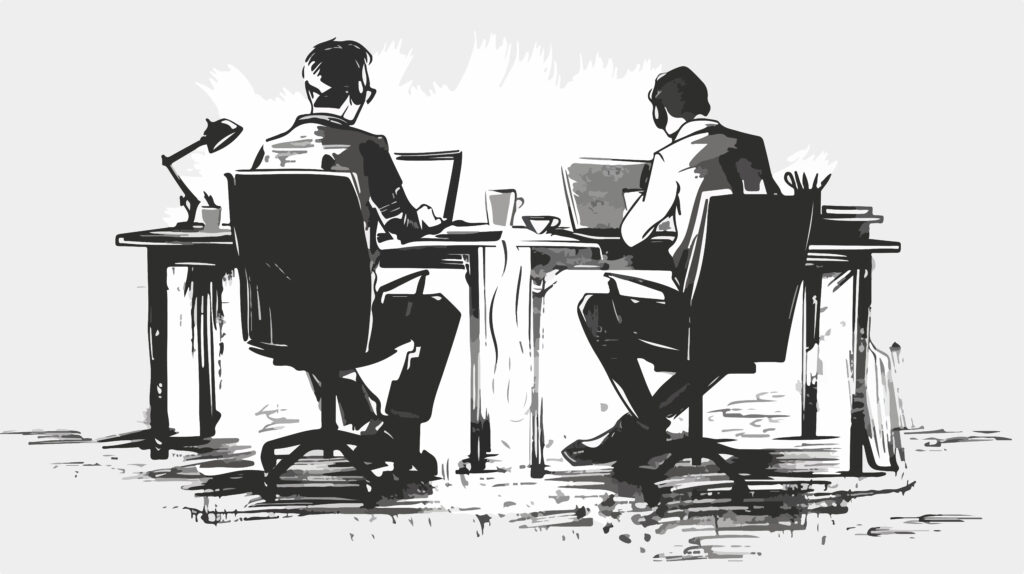
Introduction: The Demand for All Around Performance
Though you feel like you are drowning in to-do lists and calendar reminders, no matter how much you accomplish it never feels like enough. I promise you; you are not by yourself. We live in a society that praises the hustle—where value is linked with production and, should you not be always grinding, you are behind. Here’s a twist, though: what if doing less really increases your productivity?
I used to think that organising my calendar dominated output. Every minute I would be working, passionate about projects, side gigs—you know it. And for a period it felt fantastic. Burnout quickly followed, though, and my enthusiasm, creativity, and vitality suddenly sank to earth. It was at this point that I discovered the surprising reality: often, unlocking more significant, sustainable output requires doing less.
1. The Fantasy of “Always-On” Productivity
Modern society strongly emphasises the need of constantly being active in order to succeed. Just flip through social media and you will discover countless inspirational sayings as “Grind now, shine later.” Still, the fact is that we are not machines. Running at full capacity all the time is not possible without breakdown.
Studies reveal that spending longer hours has little effect on results. Actually, our output falls sharply after a certain threshold. Psychologists refer to this declining returns—that is, where more work results in less significant results. Consider this: how many times have you stayed late to complete an assignment only to discover the next day it is full of errors?
2. Rest Is Not Laziness.
It took me some time to see that rest is a need rather than only a reward you get from diligence. Our bodies and brains need time off to replenish, meditate, and process. Ignoring rest is like running your phone on 2% battery; finally, it shuts down whether you like it or not.
The breakthrough arrived for me when I stopped feeling bad about taking pauses. I began scheduling time for activities including walks, meditation, or just window gazing and allowing my mind stray. The irony is that… Those “unproductive” times turned out to be those when I had my finest ideas.
3. The Authority of Ruling Priority
Doing less implies intention rather than laziness. Consider it as closet decluttering: the objective is to retain what really counts rather than to toss everything. Every day I started playing around with a technique known as the “Rule of 3.” Rather than trying to finish twenty chores, I would select three main goals I intended to achieve. The clarity it produced changed everything.
I became effective suddenly, not just busy. I was not running after every chore that came across me. Rather, I concentrated on the work with the biggest influence, which made all the difference.
4. Accept “Deep Work” and Let Go of Task Juggling.
Stopping multitasking was one of the toughest lessons I ever picked up. It seems that multitasking increases our output. Actually, though, it only causes us to focus less on our task and lowers its quality.
Author Cal Newport’s idea of deep work transformed my attitude to output. It’s all about devoting blocks of uninterrupted time to concentrate on one important project. It was first unpleasant; our brains enjoy the rapid dopamine rushes we get from changing activities. Once I started though, I discovered I was in a state of flow—where the work was easy and time appeared to fly by. The worse is that I completed more in less time.
5. When the most effective thing you could do is nothing at all
Though it seems contradictory, some of my most creative ideas came from allowing myself to do nothing at all. Creativity came up on its own in those still times when I stopped pushing thoughts to surface.
I chose one weekend to leave my laptop at home and spend two days trekking in a natural area. I felt rejuvenated at the end of it, and when I returned to work the answer to an issue I had been battling for weeks simply came together. My brain seemed to require room to breathe so it can once more function clearly.
Redining Productivity: Less but Improved
The main observation is Productivity is about what you do not about how much you do. It’s about separating the noise from what really counts—that is, your own well-being, a personal project, or even a career ambition.
Greg McKeown once said, “If you don’t prioritise your life, someone else will.” That has stayed with me. Act of self-care include learning to say no, establish limits, and value your time. Ironically, you’ll discover that you get the crucial stuff done when you quit trying to do it all—without compromising your health or pleasure.
Finally, the will to slow down
Slowing down can be frightening, particularly in a society that values heaving activity. Still, sometimes the best approach to advance is to back off. Stopping running on autopilot and beginning intentional work can help you realise that doing less is not only more fulfilling but also more sustainable.
So stop the next time your to-do list causes you to feel overwhelmed. Breathe. Ask yourself: Today, what really counts? Remember also—doing less does not make one lazy. It sharpens your intelligence.
Productivity is not about wringing out the most from every moment. It’s about living in line with your aspirations, passions, and health. The finest thing you can do occasionally is let go of the need to do it all. Because, as you do, you may discover that less truly does become more.